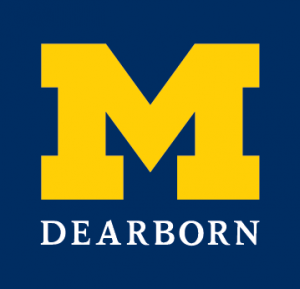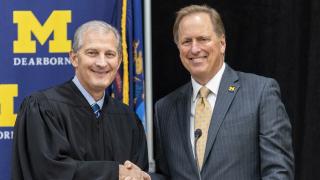

The new general education requirements include both lower- and upper-level courses that fall into one of three categories:
- Foundational Studies include courses in written and oral communication, quantitative thinking and problem solving, and critical and creative thinking.
- Areas of Inquiry include courses in natural sciences, social and behavioral analysis, humanities and the arts, as well as courses that highlight the intersections of these areas of study.
- Capstone Experiences provide opportunities for students to reflect on previous learning experiences.
Mitchel Sollenberger, associate provost for undergraduate programs and integrative learning, said the new requirements reflect the evolving concept of general education.
“We’re moving in a direction in which general education is more intentional, both for faculty and for students. It’s seen as being more holistic throughout the student’s career,” he said. “Students are building off of disciplinary knowledge that they learned in the lower-level courses and using the capstone experience to showcase what they’ve learned. If done right, I think it will give more meaning to the student’s academic career within the major.”
Dearborn Discovery Core is the result of a three-year process to determine the future of UM-Dearborn’s general education program. In 2012, Provost Catherine Davy convened a general education task force to assess the university’s general education requirements and consider alternative models.
The resulting program differs from the old in several significant ways, Sollenberger said.
For starters, administrators and faculty regularly will assess student understanding of Dearborn Discovery Core’s learning outcomes—a requirement for the university’s accreditation. Faculty will use these assessments to continually improve the system.
“The previous general education program basically was the same since it was adopted on campus; there wasn’t much change,” Sollenberger said. “This is not intended to be a static program. I’d love to see Dearborn Discovery Core become a breathing, living program that adapts to innovative pedagogy curriculum and the changing needs of our students.”
Sollenberger said Dearborn Discovery Core also is more student-friendly than the previous program. The university’s previous general education requirements varied from college to college, which meant students had a new set of requirements if they changed majors between colleges. Now, requirements are the same across all four UM-Dearborn colleges.
While Dearborn Discovery Core will continue to develop, Sollenberger said the essence of general education will remain the same: to provide a foundation of learning that encourages students to become well-rounded, engaged and active learners.
“What are we trying to do for students? I don’t think it’s necessarily to just train them in a certain field—although that’s certainly commendable,” he said. “I think there’s also the hope that we’re forming and shaping the citizens of tomorrow. I believe that Dearborn Discovery Core—and general education programs across the country—should be shaping a holistic person.”


